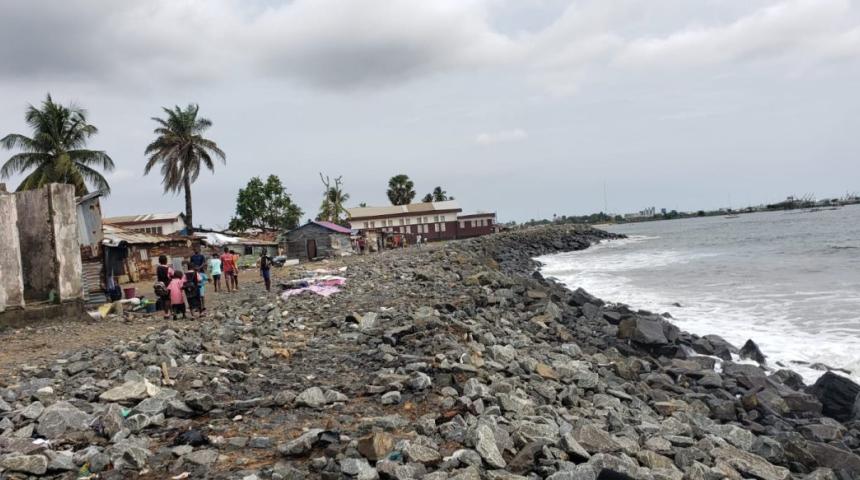The World Bank and the French Development Agency (AFD) have provided US$50 million in funding for the Liberia Urban Resilience Project (LURP) and the Monrovia Integrated Development Project (MIDP).
The initiatives, according to a release are designed to enhance the building of resilient cities across Liberia, with a focus on increasing flood resilience and access to urban infrastructure.
They will also address a range of multi-faceted urban management challenges, including a weak urban management system characterized by a lack of financial and human capital, poor coordination among actors entrusted with responsibilities for land acquisition and urban development, and a fragmented regulatory framework.
The World Bank is providing US$40 million (US$20m grant and US$20m loan) of the funding, while the AFD provided a grant of US$10 million.
At the launch of the projects, the World Bank Country Representative for Liberia, Mark Capeheart Mulbah, said the LURP was designed to address multiple challenges across the sectors of the country, including those associated with climate change and flooding, which are prevalent in cities across the nation.
Mulbah said the LURP is investing in activities at the national, community, and sectoral levels aimed to provide community members’ technical know-how to carry out and maintain numerous subjects to be funded in targeted areas.
He added some of the benefits of the project are the provision of knowledge in addition to the income-earning opportunities to the community members.
“To enhance the objective of the project, LURP will depend on the coordination and the commitment of the stakeholders at the national, city, and community levels. It is no secret that currently city management and cities heavily rely on central government transfers to operate systems around waste management and also promote development.
It is important to stress the need for citizens to consider building their own capacities to raise revenue to support critical development and climate mitigation activities,” the World Bank Representative said.
He further pledged the Banks’ dedication to collaborating with government and development partners in supporting resilient and sustainable urban development in Liberia.
French Ambassador Micheal Roux indicated that the Monrovia Integrated Development Project responds to two facts including Liberia, like many other countries, is completely hit by climate change and increased domestic rainfall which has severe consequences on the living condition and health of the people.
“The second important thing we need to look at is demographic change. The population of Liberia is increasing sharply, especially the urban population. And these happen in towns which were not meant to accommodate many people,” he said.
“Two related problems are combined with no access to basic human services such as drinking water, toilet facilities, and access to roads. The MIDP with US$10 from AFD and the LURP with US$40 million from the World Bank aim to promote inclusive and sustainable response to these difficulties.”
Roux termed the project as ambitious because it hosts improved living conditions in the country with the construction of a community hall, sports facility, library, and a strong capacity-building component.
For her part, Public Works Minister Ruth Coker Collins pledged to the Liberian leader and the donor partners her ministry’s commitment and readiness to work tirelessly in ensuring that the project development objectives are satisfactorily met.
Officially launching the projects on behalf of President George Weah, Minister of State without Portfolio Trokon Kpui said most of the problems the country currently faces with waste management and climate change were created by citizens themselves.
This, he added is the time that citizens begin to clean their environment instead of waiting for the government which does not have the capacity to fully respond to the waste collection as per the same rate these garbage are produced.

